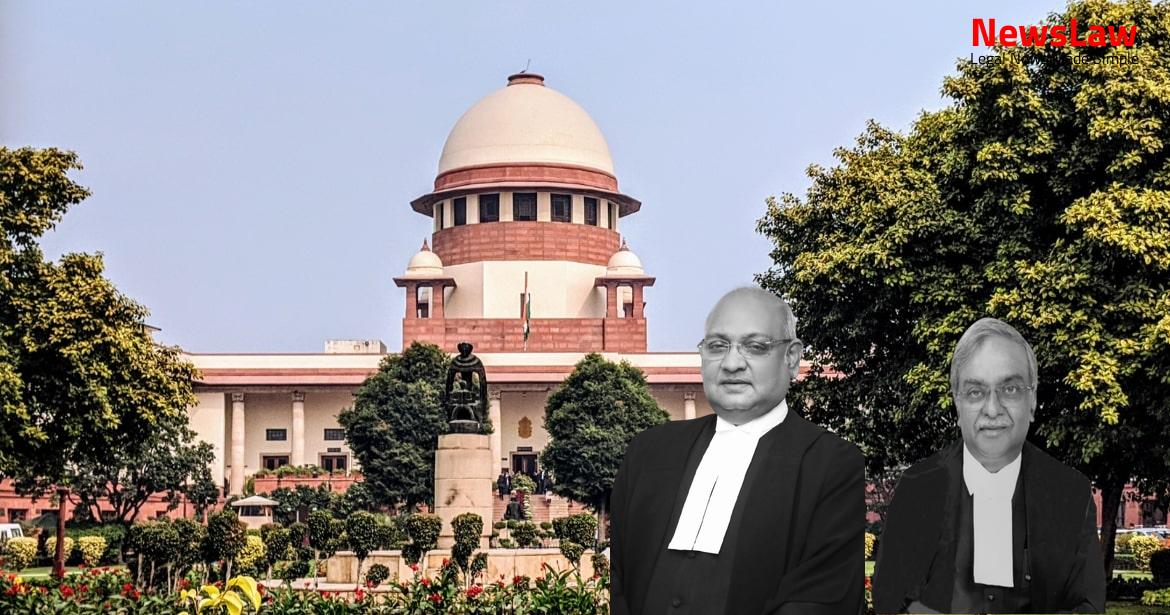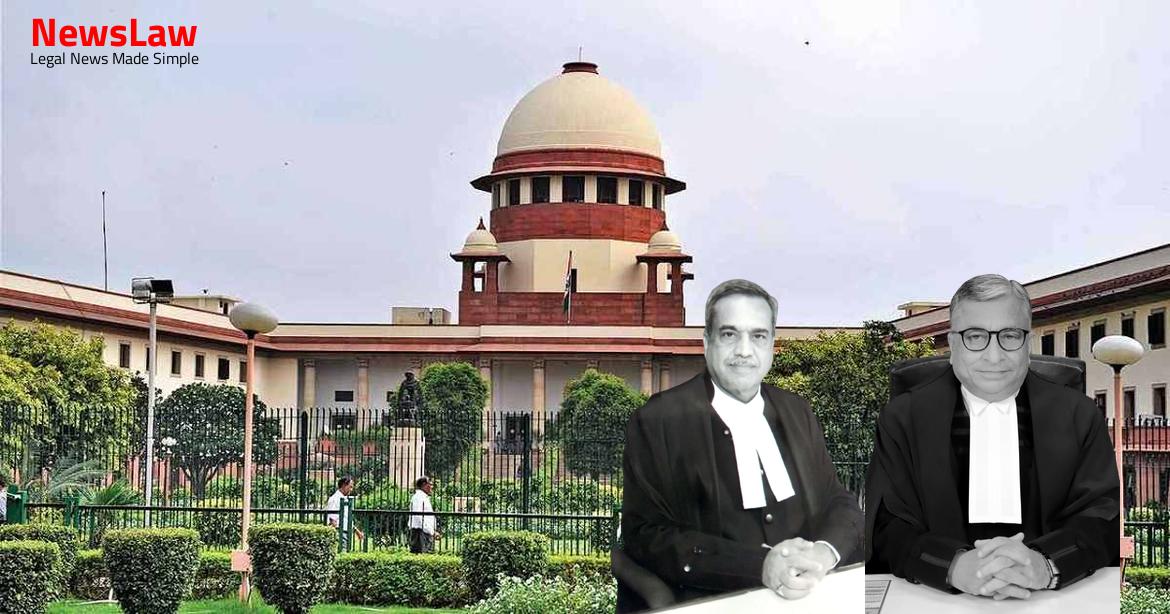Delve into the legal scrutiny of establishing a cut-off date for pension revisions based on financial constraints. The case highlights the nuanced legal examination by the court regarding the constitutionality and justification of such policy decisions. Let’s unravel the intricacies of setting pension revision timelines within the legal framework.
Facts
- The State of Tripura enacted the Tripura State Civil Services (Revised Pension) Rules, 2009 under Article 309 of the Constitution of India.
- Rule 3(3) of the Pension Rules, 2009 was challenged before the High Court and has been struck down by the High Court.
- The High Court’s decision on the Rule 3(3) led to the State of Tripura filing the present appeal.
- The State of Tripura introduced a revised pay structure for teachers in colleges in line with the 6th Central Pay Commission’s recommendations.
- The State’s notification specified that arrears would be payable subject to receipt of financial assistance from the Central Government.
- The State amended Rule 3(2) of the Pension Rules in the year 2010, fixing the maximum limit of pension at Rs. 38500.
- Revised pay and pension were made admissible and actually paid from 01.01.2009, while computed notionally for the period before that.
- The pension was revised to Rs. 26,850/- based on the revised basic pay of Rs. 53,700/-, compared to Rs. 9,150/- based on the last basic pay of Rs. 18,300/-.
- The original writ petitioner initially sought arrears of salary for 01.01.2006 to 28.02.2007 and arrears of pension for 01.03.2007 to 31.12.2008 based on the revised pay scale.
- The challenge to the validity of Rule 3(3) of the Pension Rules, 2009 was not made initially but was later added to the petition.
- The Finance Department clarified that pension would be computed notionally from the retirement date but financial benefits would be applicable from 01.01.2009 or date of retirement, whichever is later.
- The original writ petitioner, who retired as Reader-cum-Vice Principal on 28.02.2007, sought the amendment of the petition to include the prayer for quashing Rule 3(3) of the Pension Rules, 2009.
Also Read: Challenging Legal Presumptions in Negotiable Instrument Cases
Arguments
- The original writ petitioner argued that the State’s policy decision to grant the benefit of revised pension notionally from 01.01.2006 to 31.12.2008 and the actual benefit from 01.01.2009 was arbitrary and violated Article 14 of the Constitution of India.
- The petitioner stressed the need for a reasonable nexus between the policy objectives and decisions taken.
- The State contended that the financial burden and impact on the development of a small state like Tripura justified their policy decision to defer actual revision of pensions to 01.01.2009.
- The State’s counsel emphasized that unless the policy decision is found arbitrary or violative of laws, the court should not interfere using Article 226 powers.
- Despite the State highlighting financial constraints, the High Court struck down Rule 3(3) of the Pension Rules, 2009, citing it as arbitrary and violative of Article 14 of the Constitution.
- The High Court ordered the State to pay the petitioner arrears of pension from her retirement date to 31.12.2008.
- The respondent has been paid the entire arrears of pension from the date of her retirement as per the interim order
- The decisions of the Supreme Court in the cases of State of Punjab vs. Amar Nath Goyal and State of Bihar vs. Bihar Pensioners Samaj are heavily relied upon
- No representative from respondent No. 1 appeared during the proceedings
- Financial burden on the State is cited as a valid reason to establish a cut-off date for pension revisions
Also Read: Legal Analysis of Admission Irregularities in Educational Institutions
Analysis
- Finance Commission under-estimated State’s projections of Non-plan revenue expenditure which included salaries, pension, and interest payment.
- Contrary to the Finance Commission’s assessment, the State Government’s actual assessment of pension expenditure during 2008-09 and 2009-10 was higher.
- The State Government’s financial constraint led to a conscious policy decision to grant pension revision notionally from 01.01.2006 to 31.12.2008 and actually from 01.01.2009.
- The High Court struck down Rule 3(3) of the Tripura State Civil Services (Revised Pension) Rules, 2009, deeming it arbitrary and violative of Article 14 of the Constitution.
- The High Court found discrepancies in the financial situation presented by the State Government and the foundation for the policy decision, leading to the rule being quashed and set aside.
- There was a shortfall in funding on Non-Plan revenue expenditure due to the under-assessment of the state’s financial position by the Finance Commission.
- Financial implications are considered when granting additional benefits with financial implications.
- Prescription of a specific future date for conferring additional benefits is not considered arbitrary.
- Financial constraints can be a valid reason for introducing a cut-off date when implementing pension schemes.
- The case of Amar Nath Goyal is cited as an example where financial constraints were considered valid for fixing a cut-off date.
- The High Court’s decision was criticized for striking down the cut-off date of 01.01.2009.
- Financial constraints were deemed a valid ground for introducing a cut-off date for pension schemes in the case of Bihar Pensioners Samaj.
- The government has the power to fix a cut-off date for granting benefits as long as the reasons are rational and not arbitrary.
- Financial implications are important considerations when providing benefits to employees.
Also Read: Land Compensation Enhancement Case Summary
Case Title: THE STATE OF TRIPURA Vs. ANJANA BHATTACHARJEE (2022 INSC 859)
Case Number: C.A. No.-005114-005114 / 2022



